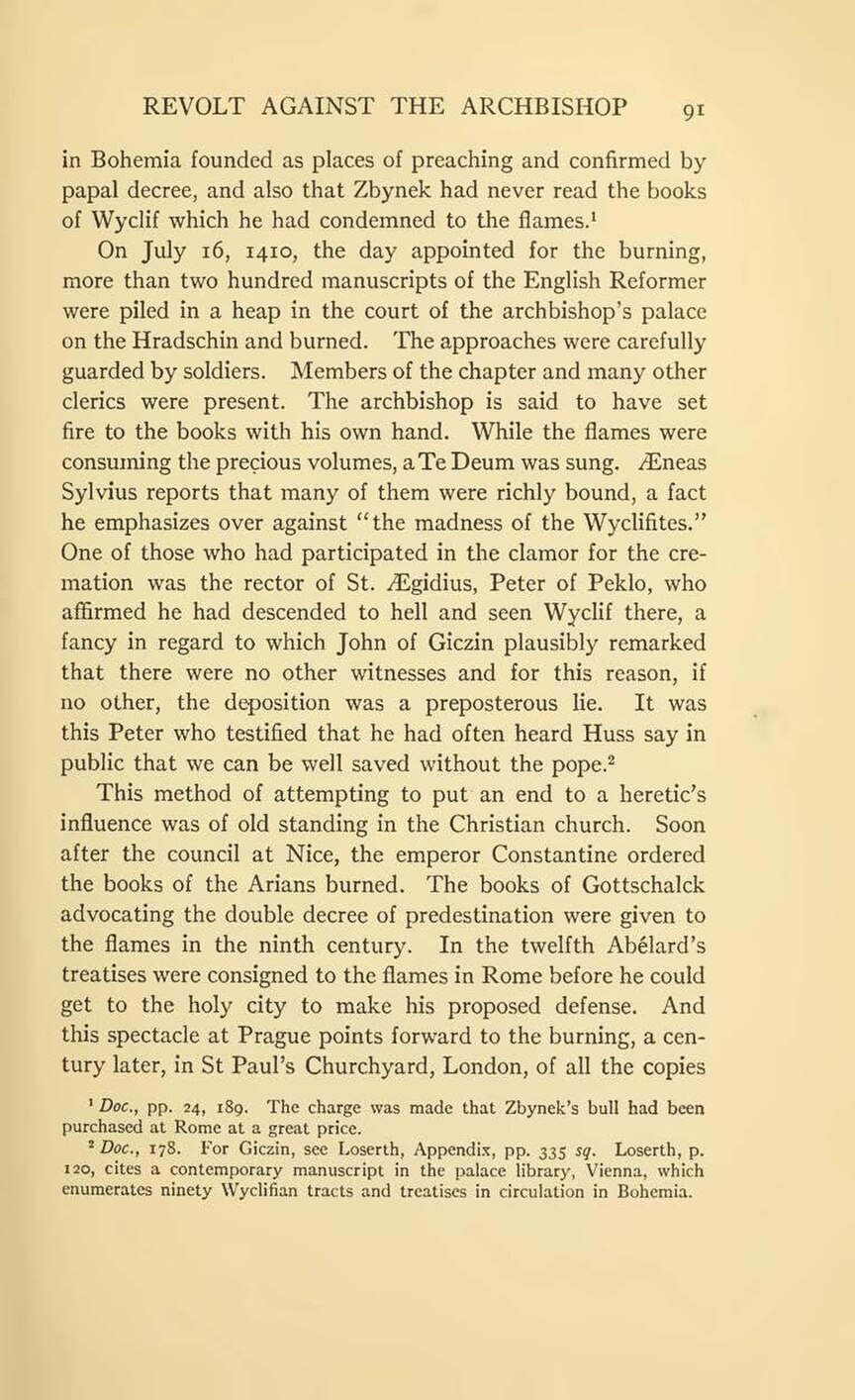in Bohemia founded as places of preaching and confirmed by papal decree, and also that Zbynek had never read the books of Wyclif which he had condemned to the flames.[1]
On July 16, 1410, the day appointed for the burning, more than two hundred manuscripts of the English Reformer were piled in a heap in the court of the archbishop’s palace on the Hradschin and burned. The approaches were carefully guarded by soldiers. Members of the chapter and many other clerics were present. The archbishop is said to have set fire to the books with his own hand. While the flames were consuming the precious volumes, a Te Deum was sung. Æneas Sylvius reports that many of them were richly bound, a fact he emphasizes over against “the madness of the Wyclifites.” One of those who had participated in the clamor for the cremation was the rector of St. Ægidius, Peter of Peklo, who affirmed he had descended to hell and seen Wyclif there, a fancy in regard to which John of Giczin plausibly remarked that there were no other witnesses and for this reason, if no other, the deposition was a preposterous lie. It was this Peter who testified that he had often heard Huss say in public that we can be well saved without the pope.[2]
This method of attempting to put an end to a heretic’s influence was of old standing in the Christian church. Soon after the council at Nice, the emperor Constantine ordered the books of the Arians burned. The books of Gottschalck advocating the double decree of predestination were given to the flames in the ninth century. In the twelfth Abélard’s treatises were consigned to the flames in Rome before he could get to the holy city to make his proposed defense. And this spectacle at Prague points forward to the burning, a century later, in St Paul’s Churchyard, London, of all the copies
- ↑ Doc., pp. 24, 189. The charge was made that Zbynek’s bull had been purchased at Rome at a great price.
- ↑ Doc., 178. For Giczin, see Loserth, Appendix, pp. 335 sq. Loserth, p. 120, cites a contemporary manuscript in the palace library, Vienna, which enumerates ninety Wyclifian tracts and treatises in circulation in Bohemia.
